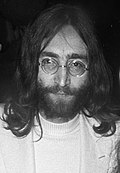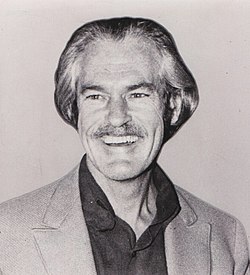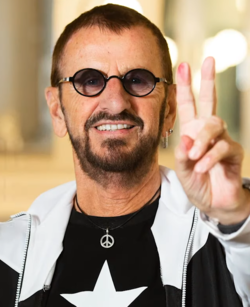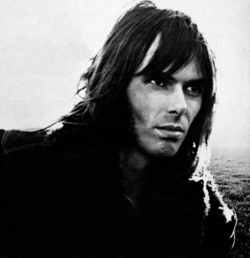| Band | Members | Release contributions and live performances |
|---|
Plastic Ono Band
(June 1969) [1] | - John Lennon – vocals, acoustic guitar
- Yoko Ono – handclaps, tambourines, backing vocals
- Tom Smothers – acoustic guitar, backing vocals
- Timothy Leary, Rabbi Abraham Feinberg, Joseph Schwartz, Rosemary Woodruff Leary, Petula Clark, Dick Gregory, Allen Ginsberg, Murray the K, Derek Taylor – backing vocals, handclaps
| |
|---|
Plastic Ono Band
(June 1969) [2] | - John Lennon – acoustic guitar
- Yoko Ono – vocals
| |
|---|
Plastic Ono Band
(September 1969) [3] | | |
|---|
Plastic Ono Band
(September 1969) [4] [5] | - John Lennon – vocals, rhythm guitar
- Yoko Ono – vocals
- Eric Clapton – lead guitar, backing vocals
- Klaus Voormann – bass
- Ringo Starr – drums
| |
|---|
Plastic Ono Supergroup
(December 1969) [6] | | |
|---|
Plastic Ono Band
(January 1970) [7] | - John Lennon – lead vocal, acoustic guitar, piano, backing vocal
- George Harrison – electric guitar, piano, backing vocal
- Klaus Voormann – bass guitar, electric piano, backing vocal
- Alan White – drums, piano, backing vocal
- Billy Preston – organ, backing vocal
- Yoko Ono – backing vocal
- Mal Evans – chimes, handclaps, backing vocal
| |
|---|
Plastic Ono Band
(January 1970) [8] [9] | | |
|---|
Plastic Ono Band
(September–October 1970) [10] [11] | - John Lennon – vocals, guitar, piano, organ
- Klaus Voormann – bass
- Ringo Starr – drums
- Billy Preston – piano
- Phil Spector – piano
| |
|---|
Plastic Ono Band
(October–November 1970) [12] | - Yoko Ono – vocals
- John Lennon – guitar
- Klaus Voormann – bass
- Ringo Starr – drums
- George Harrison – sitar
| |
|---|
Plastic Ono Band
(January–March 1971) [13] | - Yoko Ono – vocals
- John Lennon – guitar
- Klaus Voormann – bass guitar
- Jim Gordon – drums
| |
|---|
Plastic Ono Band
(January–February 1971) [14] | - John Lennon – vocals, guitar
- Yoko Ono – backing vocals, piano
- Bobby Keys – saxophone
- Billy Preston – piano, keyboards
- Klaus Voormann – bass
- Jim Gordon – drums
| |
|---|
Plastic Ono Band
(February, May–July 1971) [15] [16] | - John Lennon – vocals, guitar, piano, harmonica
- George Harrison – lead guitar, dobro
- Nicky Hopkins – piano
- Klaus Voormann – bass
- Alan White – drums, percussion
- Jim Keltner – drums
- Jim Gordon – drums
- John Barham – keyboards
- Phil Spector – backing vocal
- Joey Molland – acoustic guitar
- Tom Evans – acoustic guitar
- Ted Turner – acoustic guitar
- Rod Linton – acoustic guitar
- Andy Davis – acoustic guitar
- John Tout – piano
- Steve Brendell – double bass, percussion
- Mike Pinder – percussion
| |
|---|
Plastic Ono Band
(February and August 1971) [17] | - Yoko Ono – vocals, percussion
- John Lennon – guitar, piano, organ
- Klaus Voormann – bass, guitar, percussion
- Jim Keltner – drums, tabla, percussion
- Jim Gordon – tabla
- Bobby Keys – percussion
- Chris Osborne – dobro
| |
|---|
Plastic Ono Band with the Mothers of Invention
(June 1971) [6] | | |
|---|
Plastic Ono Band
(October 1971) [18] [19] | | |
|---|
Plastic Ono Band
(October 1971) [20] [19] | - Yoko Ono – vocals
- John Lennon – guitars
- Jim Keltner – drums
- Nicky Hopkins – keyboards
- Hugh McCracken – guitar
- Klaus Voormann – bass
| |
|---|
Plastic Ono Band with Elephant's Memory
(1971-1973) [6] [21] | - John Lennon – guitars, vocals, piano
- Yoko Ono – vocals, piano
- Jim Keltner – drums, percussion
- Wayne 'Tex' Gabriel – guitar
- Gary Van Scyoc – bass
- Stan Bronstein – saxophone, flute
- Adam Ippolito – piano, organ
- John La Boosca – piano
- Richard Frank Jr. – drums, percussion
- John Ward – bass
| |
|---|
Plastic Ono Band
(1973) [22] | | |
|---|
Plastic U.F.Ono Band
(1973) [23] | - John Lennon – vocals, rhythm guitar, slide guitar, percussion
- Jim Keltner – drums
- David Spinozza – lead guitar
- Kenneth Ascher – piano, organ
- Gordon Edwards – bass
- Arthur Jenkins – percussion
- Michael Brecker – saxophone
- Sneaky Pete Kleinow – pedal steel guitar.
- Rick Marotta – drums
- Something Different – chorus
| |
|---|
Plastic Ono Nuclear Band
(1974) [24] | - John Lennon – vocals, guitar, piano
- Klaus Voormann – bass
- Jim Keltner – drums
- Nicky Hopkins – piano
- Bobby Keys – tenor saxophone
- Kenneth Ascher – electric piano, clavinet, Mellotron
- Arthur Jenkins – percussion
- Jesse Ed Davis – acoustic guitar, lead guitar
- Eddie Mottau – acoustic guitar
| |
|---|
Plastic Ono Super Band
(1974) [25] | - Yoko Ono – vocals
- Andy Muson – bass
- Rick Marotta – drums
- Steve Gadd – drums
- Randy Brecker – trumpet
- Michael Brecker – saxophone
- Dan Grolnick – electric piano, clavinet, Mellotron
- Steve Khan – guitar
| |
|---|
| Disbanded. |
|---|
Yoko Ono Plastic Ono Band
(2009) [26] | - Yoko Ono – vocals
- Sean Lennon – acoustic and electric guitars, piano, keyboards, bass, drums, percussion
- Cornelius – guitars, bass, Tenorion, programming, percussion
- Yuka Honda – piano, organ, percussion
- Hirotaka Shimizu – guitars, percussion
- Yuko Araki – drums, percussion
- Shahzad Ismaily – guitars, bass, drums, percussion
- Michael Leonhart – trumpet, vibraphone, percussion
- Erik Friedlander – cello
- Daniel Carter – tenor saxophone, flute
- Indigo Street – guitar
| |
|---|
Yoko Ono Plastic Ono Band
(2009–Present) [27] | - Yoko Ono – vocals
- Sean Lennon – guitar, vocals, bass, keyboards, drums
- Yuka Honda – keyboards
- Keigo Oyamada – guitar
- Hirotaka Shimizu – guitar, bass
- Yuko Araka – drums
- Michael Leonhart – trumpet
- Erik Friedlander – cello
| - We Are Plastic Ono Band" Tour
|
|---|
Plastic Ono Band
(February 2010) [28] | - Yoko Ono – vocals
- Eric Clapton – guitar
- Klaus Voormann – bass
- Jim Keltner – drums
- Sean Lennon – vocals, guitar
| - 16 February 2010 concert at the Brooklyn Academy of Music
|
|---|
The Flaming Lips with Yoko Ono/Plastic Ono Band
(2011) [29] | - Yoko Ono – vocals
- Sean Lennon – guitar
- Wayne Coyne – vocals, guitar, keyboards
- Michael Ivins – bass, keyboards, backing vocals
- Steven Drozd – vocals, drums, guitar, keyboards, backing vocals
- Kliph Scurlock – drums, percussion
- Derek Brown – guitar, keyboards, percussion, backing vocals
| - The Flaming Lips 2011 #11: The Flaming Lips with Yoko Ono/Plastic Ono Band
|
|---|
Yoko Ono Plastic Ono Band
(2013) [30] | - Yoko Ono – vocals
- Sean Lennon – guitar, piano, bass, synthesizer, percussion
- Cornelius – remixing
- Yuka Honda – keyboards, synthesizer
- Lenny Kravitz – drums
- Nels Cline – guitar
- Questlove – drums
- Bill Dobrow – drums
- Hirotaka Shimizu – guitar
- Keigo Oyamada – bass, guitar
- Julian Lage – guitar
| |
|---|







































